Contents
Discover natural home remedies for high blood pressure, but first, let us learn a little more about this disease. High blood pressure or hypertension may or may not cause symptoms; however, if they occur, they may involve headaches, difficulty breathing, rapid pulse, blurred vision, or a feeling of dizziness. Overweight, a ruddy complexion, and seemingly robust health may be the only outward manifestations in a man 50 or 60 with systolic pressure as high as 200 or more. High blood pressure is known as the “silent killer” because it seldom reveals symptoms until too late.
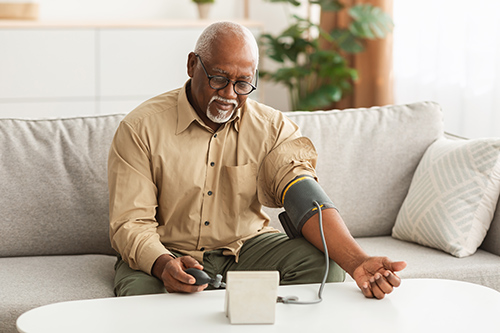
High Blood Pressure Causes
High blood pressure is precisely what it sounds like. The blood flow pressure through the arteries is higher than expected, and that pressure consistently remains higher. Excessive force is exerted on the valves and the pumping muscles of the heart. Stress is also exerted on the functioning lifelines in the body—the arteries, the capillaries, etc. This condition is exemplified by a red or flushed complexion, discomfort, excess weight, and sometimes skin pallor.
High blood pressure results from improper living habits, which can cause a run-down condition. A blood pressure indicator (sphygmomanometer) displays two readings: The first and highest is systolic; the second and lowest is diastolic. The diastolic pressure arises just before the heartbeat and is less critical for establishing blood pressure. However, the systolic pressure reveals the tension built up as the heart pumps blood out of the heart into the aorta (and, therefore, through the arteries).
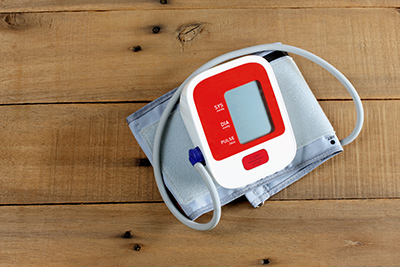
High systolic pressure suggests that the cell walls are hardened and/or plaques are forming in the arteries, narrowing the passageways. The average normal systolic pressure in an adult varies between 120 and 150 millimeters of mercury and tends to increase with age. Older people’s arteries tend to harden and thicken with age, producing higher readings in later life.
The age, concerning the figures, tells a lot: Systolic readings of 140-150 at 55 to 70 years of age need to be deemed high, but appearing in a man of 30 years of age points to an obvious problem that requires attention.
Regular blood pressure readings for adults fluctuate between 110/70 to 140/90, while readings of 140/90 to 160/90 or 160/95 suggest marginal blood pressure. Any reading above 180/115 is far too high. The hardening and blocking produce changes in the arteries, resulting in hypertension initiated by aging, food, emotional stress, overindulging, and genetics.
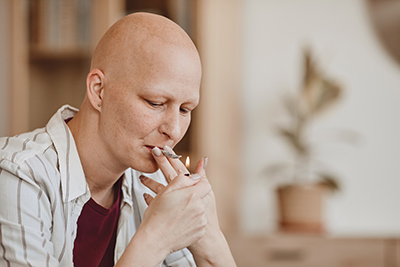
Tobacco use is another trigger of hypertension, as is the use of oral contraceptives. Consumption of coffee or tea, high sodium intake, and drug abuse are other causes. High blood pressure can result in coronary artery disease, strokes, or heart enlargement. Acute infections (such as tonsilitis, scarlet fever, and typhoid fever) or focal infections from tonsils or teeth sometimes lead to Bright’s disease (a kidney disease), accompanied by elevated blood pressure.
Sudden attacks of convulsions in pregnant women (eclampsia) and other kidney diseases of pregnancy usually cause hypertension. Other conditions do not cause primary hypertension (about ninety percent of the cases). Diet is a significant factor in producing high blood pressure. Sixty million Americans have this disease. About ten percent of people in the United States have primary hypertension at any time.
It affects over half of all people in America over sixty-five. African Americans have it over a third more often than whites, and those 18 to 44 have it eighteen times more frequently than whites. Women have hypertension less often than men until menopause is over; soon after, they have it as often. Heavy snorers are more likely to have high blood pressure than silent sleepers. Julian Whitaker. M.D. (Newport Beach, CA) says, “Volumes of scientific research show that dietary changes can eliminate high blood pressure in most patients,”
Natural Home Remedies for High Blood Pressure
Here are some natural home remedies for high blood pressure utilizing DIET:
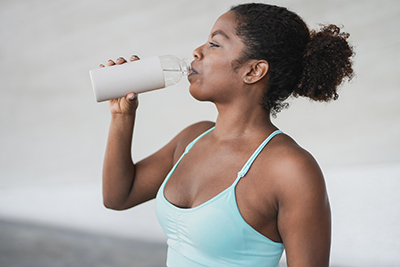
DRINK PLENTY OF WATER: Dr. Whitaker recommends drinking 15 glasses of water daily. Almost all blood pressure medications mimic the effects of increased water intake. They usually do that by thinning the blood. This makes drinking water one of the many natural home remedies for high blood pressure.
EAT PLENTY OF FIBER: Fiber is another top of the list natural home remedies for high blood pressure. Consume a high-fiber diet of fruits, vegetables, whole grains, and nuts. Eat oat bran: It appears to be the very best type for the purposes you have in mind. For oil, take two tablespoons of flaxseed oil daily.
EAT POTASSIUM RICH FOODS: You cannot lead people to natural home remedies for high blood pressure without mentioning this all-important mineral. A potassium-rich diet (primarily fresh fruits and vegetables) helps the body eliminate additional sodium. Eat potato peeling soup (the potassium is richest just under the peeling of the white potato. Only consume unsalted natural foods.
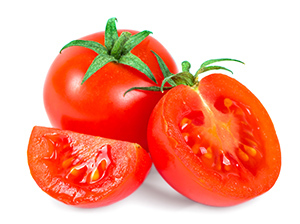
GARLIC: Raw garlic is a vasodilator that normalizes blood pressure, whether too high or too low. If you take a commercial garlic preparation, ensure it has a dosage equivalent to four thousand mg of fresh garlic.
CALCIUM: Include supplemental calcium in your diet for another one of the many beneficial natural home remedies for high blood pressure.
GRAPESEED EXTRACT: This extract contains oligomeric proanthocyanidins (OCPS) and tends to lower high blood pressure, which can cause heart disease.
TOMATOES: Tomatoes contain the compound gamma-aminobutyric acid (GABA), which reduces blood pressure and helps strengthen the heart muscle. Several other vegetables (including garlic, onions, and celery) also contain GABA. (The valerian herb contains valerenic acid, which inhibits an enzyme that destroys GABA in the body. You can also drink this herb via tea preparation.)
CELERY: Consuming four stalks of celery has been shown to lower pressure measurably.
BROCCOLI: This vegetable possesses six chemicals that reduce blood pressure. Carrots contain eight compounds that lower it.
ANTIOXIDANTS: They help prevent artery-clogging plaque from being deposited on coronary artery walls. Foods with it include asparagus, cabbage, cauliflower, broccoli, peaches, grapefruit, potatoes, tomatoes, and oranges. The National Research Council urges Americans to “strive for five” to get at least five servings of vegetables and fruits daily. Many nutritionists say that eight or nine servings are even better. (Only ten percent of Americans get even five).
APPLE PECTIN: Tends to lower blood pressure.
Here are some natural home remedies for high blood pressure utilizing NUTRIENTS:
ANTIOXIDANT-RICH VITAMINS: Take vitamins such as C, E, carotenoids, and folic acid. Plenty of studies have shown that, as consumption of these nutrients increases, the risk of heart attack falls by up to forty percent (and cancer risk drops fifty percent).
VITAMIN C and BIOFLAVONOIDS: Try to consume (1000 to 5000 mg) to maintain the health of blood vessels and improve the potassium ratio by helping to excrete sodium.
VITAMIN E: (Gradually increase monthly to 400 IU) to decrease the need for oxygen, thus improving heart function.
LECITHIN: It is rich in B vitamins, choline, and inositol to decrease blood pressure by dilating blood vessels and preventing fatty deposits in the arteries.
VITAMIN D: Deficiency in this vitamin can contribute to high blood pressure. A ten-year study of patients 40 to 60 years old showed a connection between low blood levels of the vitamin and higher blood pressure. Take 400 IU of vitamin D each day.

COENZYME Q10: People with hypertension tend to be deficient in this nutrient. When they take supplements of CoQ10 (50 mg twice daily), blood pressure decreases significantly. This nutrient is a powerful addition to natural home remedies for high blood pressure.
Avoid or Limit
EXTREME OVEREATING: Overeating even good food will result in hypertension. A person does not tend to overeat healthfully prepared natural foods. Also, do not overindulge in the following: excessive protein foods, rich pastries, desserts, and sweets.
AVOID TOO MUCH SALT: Limit salt consumption, essential in lowering blood pressure. Read all labels. Most foods contain sodium. Look for “sodium,” “salt,” “Na,” or “soda” on the label. Also, abstain from baking soda, soy sauce, MSG (monosodium glutamate), diet soda, saccharin, softened water, preservatives, and meat tenderizers. Too much sodium causes fluid retention, which exerts pressure on blood vessel walls and thus increases hypertension.
TRY TO ABSTAIN FROM EATING MEAT: Avoid meat and canned vegetables. Reduce all dairy products, as they are high in sodium. Also, avoid animal fat, unsaturated fat, grease, margarine, butter, or any product containing them. Avoiding all of them will lower blood pressure.
LIMIT OR ABSTAIN from eating aged cheeses, yogurt, avocados, alcohol, and chocolate, all known to increase blood pressure.
AVOID taking more than 400 units of vitamin D daily. Do not take supplements containing phenylamine, tyrosine, and amino acids.
DO NOT TAKE antihistamines.
DO NOT EAT LATE: Try not to eat later than several hours before going to bed.
LIMIT stress, anger, fear, and pain because they can increase blood pressure. Try to exercise regularly because it helps reduce the effects of stress.
NOISE raises blood pressure. Try to eliminate sudden loud sounds.
SMOKING IS DANGEROUS: The chemicals in tobacco can tighten your arteries, raising your pressure; it can also damage your lungs and other organs.
PULSE TEST: Perform a pulse test to determine which foods are problematic.
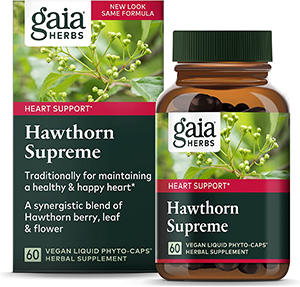
Herbs
HAWTHORN extract can widen blood vessels, especially the coronary arteries. It has been employed as a heart tonic for centuries. Make tea by adding 1 tsp of the dried hawthorn herb to 1 cup of boiling water and drinking up to 2 cups daily.
KUDZU: Research shows that kudzu contains puerarin, which decreases blood pressure by fifteen percent in lab animals and humans. Puerarin has one hundred times the antioxidant activity of vitamin E and helps prevent heart disease and cancer.
SAFFRON contains crocetin, which lowers blood pressure. Make a tea of it or use it in your cooking.
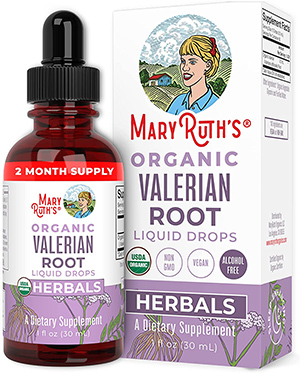
FENNEL contains ten compounds that lower blood pressure. Oregano has seven, and basil and tarragon have six.
YELLOW DOCK: Drink tea from either the seed or herb to lower blood pressure.
BLACK COHOSH: Research findings reveal that it tends to lower blood pressure. Cayenne also reduces it.
VALERIAN ROOT: According to studies, especially in Germany and Russia, the significant constituents of valerian root, the valepotriates, cause its lowering of blood pressure. Like many other herbs, valerian root has no side effects, even at high doses.
NATURAL HOME REMEDIES for HIGH BLOOD PRESSURE FORMULA: Mix two parts each of peppermint and chamomile. Combine with one part each of anise, milfoil, fennel, and caraway—steep one tsp in ½ cup boiling water. Take 1 ½ cups daily, in mouthful doses.
A famous Canadian herbalist, Dr. Shook, created the following natural home remedies for high blood pressure formula: Mix 15 tsp of buckthorn and 6 tsp Indian senna fruit with 1 ½ tsp each of black cohosh, cassia bark, Indian senna fruit, poke root, sassafras bark, and European goldenrod. Use one tsp per cup of boiling water, simmer for two to three minutes, steep for ten minutes, then strain, sweeten with honey, cool the bottle, and store in a cool place. Drink one cup three times a day, before or after meals.
The blood stiffens from catarrhal, and additional glutinous and fibrinous matter loads the circulatory system. Generally, the bowels are clogged with putrid body waste, making it necessary to cleanse the excretory systems to cleanse the blood.
Herbal aids: With hypertension, mucus, and cholesterol produce a sludge within the body. Avoid mucus-forming foods and consume herbs that act as a solvent by liquifying impurities, such as garlic, cayenne, or sassafras. Take cayenne, working your way up to a teaspoon three times daily. This enhances the power of the heart and corrects circulation complications.
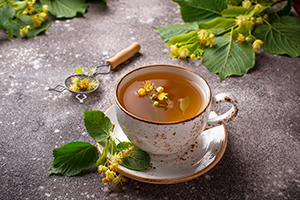
Garlic, in abundant amounts, will bring down blood pressure. Natural tomato juice is very good as a nutritious and medicinal herb. Wheat germ oil is outstanding for feeding the heart. It helps cut the cholesterol and ensures smooth removal from the area.
Avoid the use of tobacco and liquor, do not keep late hours, and avoid over-tiredness and worry. There is an intricate inter-relationship between one’s living habits and body condition.
It would help if you urgently had daily outdoor exercise. (Those who maintain physical fitness are 34 percent less likely to develop hypertension).
Get adequate rest at night.
Check your blood pressure consistently, especially if you have blood pressure issues or are pregnant.
Keep your weight down. Losing weight lowers blood pressure. If you are obese and suffer from high blood pressure, fasting one or two days a week can benefit you.
In Advanced Cases
Special care must be given when the situation is critical to improvement. Sufficient rest, both mental and physical, is needed. Even the visits of relatives and friends may have to be limited or forbidden for a time.
MILD EXERCISE: Gradually (slowly) start walking outdoors and build up the time to at least one hour daily.
BLOOD PRESSURE MEDICATIONS tend to have adverse effects. Moderate exercise, sleep, rest, and a proper diet will help better than medicating yourself.
NO VIGOROUS or TONIC HYDROTHERAPY, or even massage, should be used. A neutral bath and complete bed rest are needed.
FRUIT and BROWN RICE is a very effective recommended program. Consume nothing but fruits and brown rice alone for one to two weeks.
DISCLAIMER: All content on this website is presented solely for educational and informational objectives. Do not rely on the information provided as a replacement for advice, diagnosis, or treatment from a qualified medical expert. If you are pregnant, nursing, or have any preexisting medical concerns, talk to your doctor before using any herbal or natural medicines.
REFERENCES
- Vance Ferrell Harold M. Cherne, M.D. The Natural Remedies Encyclopedia [Book]. – Altamont, TN : Harvestime Books, 2010. – Vol. Seventh Edition : 7 : pp. 526, 527, 528. [Natural home remedies for high blood pressure]
- National Institutes of Health (NIH): https://www.nhlbi.nih.gov/education/dash-eating-plan
- Mayo Clinic: https://www.mayoclinic.org/diseases-conditions/high-blood-pressure/expert-answers/blood-pressure/faq-20058543
- American Heart Association (AHA): https://www.heart.org/en/health-topics/high-blood-pressure/changes-you-can-make-to-manage-high-blood-pressure/how-potassium-can-help-control-high-blood-pressure
- Mayo Clinic: https://www.mayoclinic.org/diseases-conditions/high-blood-pressure/in-depth/high-blood-pressure/art-20046974
- National Institute on Aging (NIA): https://www.nia.nih.gov/health/high-blood-pressure
